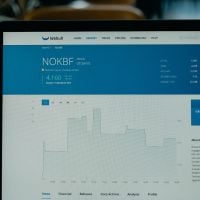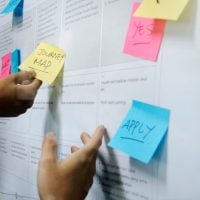Deadline: 30-Aug-2024
Researcher Challenges grants from Going Global Partnerships are designed to support international research partnerships between the UK and other countries, with a focus on women’s resilience to climate change.
Researcher Links Climate Challenges (RLCC) Grant was one of many activities they delivered in the run up to COP26, which took place in Glasgow in November 2021. The overall aim was to harness the power of people all over the world to connect and collaborate through culture and education to combat climate change, with a particular focus on young people and those most vulnerable to these effects.
Complex problems such as climate change cannot be addressed from the perspective of one discipline alone. The RLCC grants supported research workshops for participants from the UK and partner countries, to develop innovative solutions to development challenges related to climate change. This call builds on experience of combining workshops with early career prizes to encourage longer term, sustainable collaborations toward shared research and engagement activities.
Objectives
- Establishing of new networks and collaborations bringing together various backgrounds and disciplines.
- Strengthening the voices of early-career researchers in the climate change community.
- Developing relevant research around women’s resilience to climate change.
- Generating innovative ideas for businesses to support women’s resilience to climate change.
- Enhancing capacity of early career researchers, with a specific focus on women and climate change.
Themes
- In recognition of the urgent need for gender transformative climate action and to support the agenda by strengthening pathways for inclusion of women and girls in climate action and policy initiatives, the theme of the current Researcher Challenges grant is ‘Supporting Women’s Resilience to Climate Change’. Some focus areas for grants are suggested below, though the list is not exhaustive:
- Solutions that benefit women
- Role of women in climate change planning/decision making
- Empowering/upskilling women for climate change adaptation
- Women and the green net zero economy
Funding Information
- Researcher Challenges Grant expects to support atleast one project per country, up to £ 30,000 in value each, for a 12-month period, starting from January 2025.
Project Model
- They will support the delivery of one virtual workshop of 3-5 days total duration, organised jointly by the UK and overseas partner institution (in each participating country) bringing together up to 46 participants of early career researchers, principal researchers and mentors to work on challenges caused by climate change for women.
- Each workshop will be co-ordinated by two Leading or Established Researchers (Principal Applicants), one from each country. Principal Applicants can identify up to four additional Leading or Established Researchers (two from each country) to be involved in the workshop and act as mentors, but the remaining participants must be researchers at an earlier stage in their career (either recognised or earlystage established researchers). It is highly recommended that at least one Leading or Established Researcher involved should come from a social science, arts or humanities field and at least one from a science, technology, engineering or mathematics (STEM) field, to encourage interdisciplinary dialogue.
Eligibility Criteria
- Each proposal must have both:
- At least one Lead institution from ONE of these countries – Iraq, Mexico, Morocco, Peru
- One Lead institution from the UK
- The proposal must be prepared jointly by leads from both institutions but submitted by the Lead from the UK Institution.
- Not-for-profit research institutions, establishment and organisations.
- Overseas lead institution must be one of the following:
- Higher Education provider, as locally defined
- Not-for-profit research institutions, establishment and organisations, as locally defined The Lead institution in the overseas country must have the capacity to administer the grant. They need to submit a support letter to confirm their capacity and capacity must be confirmed in the support letter.
- The partnership can include in their proposals Associated Partners (from both the overseas county and the UK) affiliated with:
- Higher Education providers
- Not-for-profit research institutions, establishment and organisations
- TVET/FE providers
- Other education organisations/charities/foundations/membership bodies
- Not-for-profit organisations, including Non-Governmental Organisations (NGOs)
- For-profit/commercial organisations, including small and medium enterprises (SMEs)
- Branch and satellite campuses of UK Higher Education providers
- Government organisations
- Employer organisations and industry bodies
- Civil Society Organisations (CSOs) and Social Enterprise organisations
- For-profit non-education organisations are not eligible to receive any grant funds, except to cover travel-associated costs.The proposal must clearly define their contribution to achieving call objectives.
For more information, visit British Council.









































